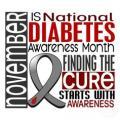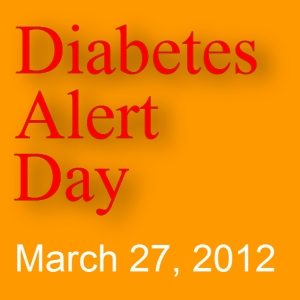Book Review: Inspiring and Supporting Behavior Change: A Food and Nutrition Professional’s Counseling Guide
This is one in a series of book reviews. You may find these books beneficial if you: manage prediabetes or diabetes, follow a diabetes meal plan and/or try to eat healthy to live well. These book reviews also appear on amazon.com and the books can be found in my amazon a-store. Please check them out and consider a purchase.
Note: This book is geared to healthcare providers who help people make behavior changes. I’ve recently reviewed a similar book for healthcare providers Behavioral Approaches to Treating Obesity: Helping Your Patients Make Changes That Last.
 Changing behaviors is a difficult process, period! When it comes to changing behaviors to impact health outcomes, frustrations can multiply for the person managing the condition and the healthcare providers (HCPs) encouraging the person to make changes.
Changing behaviors is a difficult process, period! When it comes to changing behaviors to impact health outcomes, frustrations can multiply for the person managing the condition and the healthcare providers (HCPs) encouraging the person to make changes.
Inspiring and Supporting Behavior Change: A Food and Nutrition Professional’s Counseling Guide, written by Ann Constance and Cecilia Sauter, both dietitians and Certified Diabetes Educators with years of expertise counseling people with diabetes, is a handbook designed to help HCPs learn to more successfully and effectively inspire people to make critically important behavior changes.
Out Raising Awareness During American Diabetes Month
 The diabetes stats are downright staggering! Nearly 19 million people are diagnosed with diabetes in the U.S. and another 6 million are estimated to have diabetes but don’t yet know it. Add to this number, another 79 million people with prediabetes yet barely 10 percent of these throngs of people know they have it.
The diabetes stats are downright staggering! Nearly 19 million people are diagnosed with diabetes in the U.S. and another 6 million are estimated to have diabetes but don’t yet know it. Add to this number, another 79 million people with prediabetes yet barely 10 percent of these throngs of people know they have it.
Unfortunately people continue to think of type 2 diabetes as a ho-hum disease and tend not treat it early and aggressively. Yet we know early and aggressive care of type 2 is exactly what keeps people healthier longer. And we know early awareness and action with prediabetes can prevent/delay the progression to type 2 diabetes.
So, to honor American Diabetes Month, I’ve grabbed every opportunity which has come my way to raise awareness, educate and promote action. Check out links to these guest blogs, videos, and interviews:
Got Diabetes? Necessary or Needless to Follow 'A Diabetic Diet'?
 Is there ‘a diabetic diet’? NO!
Is there ‘a diabetic diet’? NO!
According to the American Diabetes Association (ADA), and this has been true since 1994 – nearly 20 years, there is no one diabetic diet that represents THE prescription for THE way ALL people with diabetes should eat.
Are there ‘diabetic foods’ which people with diabetes should buy? NO!
Foods labeled ‘diabetic’ or ‘diabetic-friendly’ carry a halo of being better-for-you than unprocessed, unadulterated and unlabeled foods. But, it’s just not so.
So, then what’s the eating plan for people with diabetes today?
The nutrition recommendations from the American Diabetes Association, last updated in 2008, echo the healthy eating recommendations of the United States Dietary Guidelines for Americans last revised in 2010.
These recommendations reflect the growing body of evidence that a plant-based eating plan can help people achieve and maintain a healthy body weight and prevent and manage chronic diseases, like diabetes, heart disease and certain cancers.
Let’s Look Ahead From Look AHEAD
 Have you heard that the Look AHEAD (Action for Health in Diabetes) randomized controlled trial conducted through National Institutes of Health (NIH) was ended two years ahead of schedule? This news crossed my eyes first on 10/20/2012 via twitter. Got to love twitter!
Have you heard that the Look AHEAD (Action for Health in Diabetes) randomized controlled trial conducted through National Institutes of Health (NIH) was ended two years ahead of schedule? This news crossed my eyes first on 10/20/2012 via twitter. Got to love twitter!
The press information from the NIH’s National Institute of Diabetes and Digestive and Kidney Diseases (NIDDK), announced on 10/19/2012 that the trial had been stopped about a month earlier – in September. Why? Because in this long and lengthy trial, in which people had been enrolled for up to 11 years, the people in the intensive lifestyle intervention (ILI) group did not experience a decrease in cardiovascular events (CV) (heart attacks, strokes, etc.) compared with the people in the control group.
The Key Look AHEAD Question…and Answer
Can an intensive lifestyle intervention program (ILI) which achieves and maintains weight loss help prevent/delay the heart and circulatory problems which are the most common complications of type 2?
Parents: Time to Take a Seat AS Head of the Table
 I’m just back from the American Diabetes Association’s 72nd Annual Scientific Sessions and I'm even more concerned about our diabetes epidemic. Prior to 10 year ago you never heard about type 2 diabetes in children or prediabetes. Not so today! Stats show 1 in 3 children born in 2000 or beyond will develop type 2 diabetes. Today nearly 80 million Americans (that’s over a quarter of our population!!) have prediabetes. The TODAY multicenter NIH trial, recently in the news and headliner at ADA, is downright scary! It showed that type 2 diabetes in youngsters progresses more quickly requiring more rapid progression through oral blood glucose lowering medications and on to insulin. A major concern with type 2 in youth is that with rapid disease progression and less than ideal control, these people may develop heart, kidney and eye disease just a couple of decades later. That's the prime of these childrens' lives.
I’m just back from the American Diabetes Association’s 72nd Annual Scientific Sessions and I'm even more concerned about our diabetes epidemic. Prior to 10 year ago you never heard about type 2 diabetes in children or prediabetes. Not so today! Stats show 1 in 3 children born in 2000 or beyond will develop type 2 diabetes. Today nearly 80 million Americans (that’s over a quarter of our population!!) have prediabetes. The TODAY multicenter NIH trial, recently in the news and headliner at ADA, is downright scary! It showed that type 2 diabetes in youngsters progresses more quickly requiring more rapid progression through oral blood glucose lowering medications and on to insulin. A major concern with type 2 in youth is that with rapid disease progression and less than ideal control, these people may develop heart, kidney and eye disease just a couple of decades later. That's the prime of these childrens' lives.
A take away message from the 2012 ADA meeting is we’ve got to continue to beat the drum about preventing overweight BEFORE type 2 diabetes. The most cost effective approach is to encourage healthy eating from the start. I believe it’s absolutely critical for parents to take a seat AS the head of the table and serve up tough love when it comes to healthy eating.
Diabetes Alert Day: For Whom, For What?
 Yes, it’s Diabetes Alert Day, but who are all these red flags aimed at and to do what?
Yes, it’s Diabetes Alert Day, but who are all these red flags aimed at and to do what?
Who?
Around the world the who to alert on Diabetes Alert Day is hundreds of millions of people. The International Diabetes Federation offers tons of global facts and stats. Suffice to say there’s a type 2 diabetes tsunami already well on it’s way!
In the U.S. the Centers for Disease Control and Prevention’s (CDC) National Diabetes Fact Sheet tells us exactly who Diabetes Alert Day is targeted to:
7 million of the 26 million people with diabetes WHO do not yet know they have diabetes. If any of these 7 million people were tested today, they could be diagnosed with diabetes. For most of these people, it’s type 2 diabetes. (26 million people with diabetes represents over 8% of our population.)
70+ million people WHO could be diagnosed with prediabetes today. (Yes, you read this number correctly. Of the estimated 79 million Americans with prediabetes (that’s 35% of American adults), only 8% (and that’s being generous) know they have prediabetes and research shows not even half of these individuals (or their healthcare providers) are taking preventive efforts to slow it’s progression (Learn more in my blog Prediabetes, But Nearly No One Knows It.)

